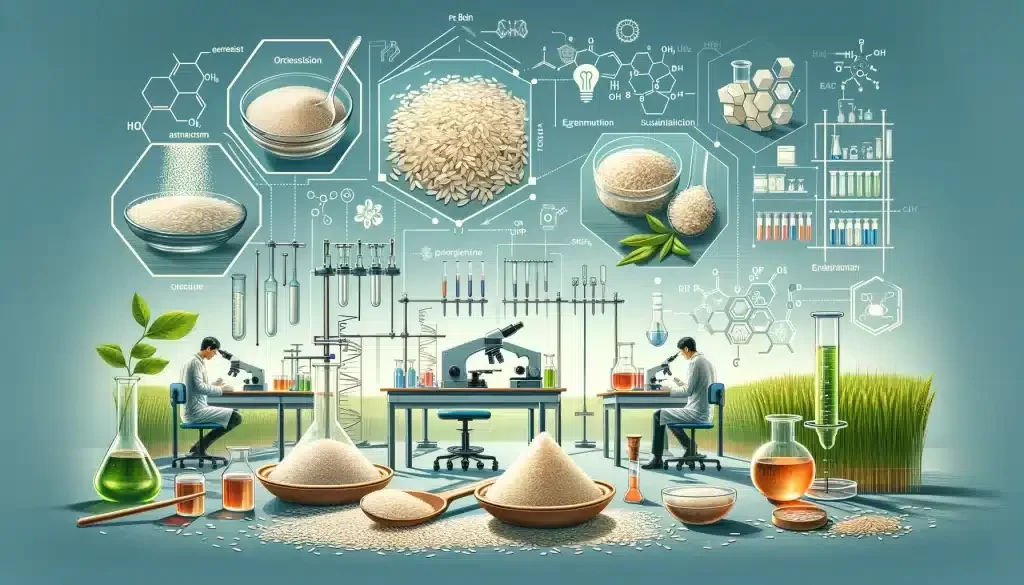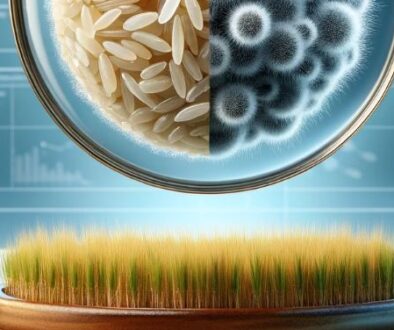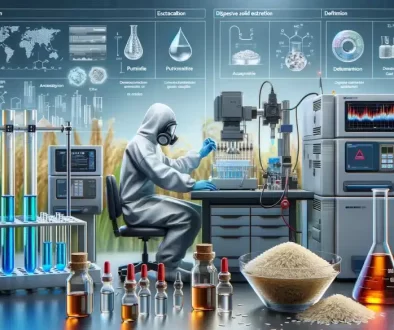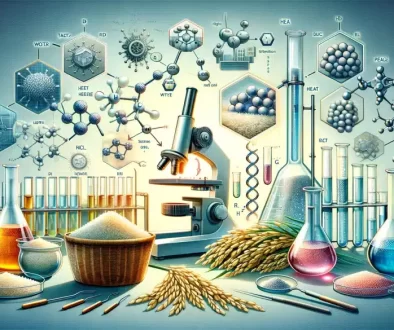Rice protein and its research progress
Explore the extraction, properties, and applications of rice protein, a low-allergen, amino-acid-rich ingredient for food and health industries.
Keywords: broken rice,starch sugar,bioactive peptide,rice peptide,rice protein,liver
protection
Extraction of Rice Protein
Research in China on rice protein has primarily focused on its extraction due to its balanced amino acid composition and low allergenicity. Physical extraction methods are challenging, and the high cost of rice protein extraction processes makes industrialization difficult. Given that the glutelin in rice protein, which is alkaline-soluble and constitutes more than 70% of the protein content, the industrial extraction of rice protein in China mainly employs an alkaline method. Other methods include enzymatic hydrolysis and a composite method.
The alkaline method, which facilitates the separation of protein from starch by loosening their bond, results in a high extraction rate, low process cost, and simple production process. However, it does not meet the nutritional standards for food-grade protein due to severe protein denaturation at high alkaline concentrations, potential formation of toxic substances from amino acid condensation reactions, and the production of a significant amount of acidic and alkaline wastewater, which is costly to treat and environmentally unfriendly.
Enzymatic extraction methods include amylase and protease methods. Compared to the alkaline method, the protease method yields food-grade protein under mild conditions, though with low extraction rates and high costs. The amylase method removes starch present in broken rice, separating it from protein through centrifugation and dialysis, achieving a protein extraction rate and purity of over 70%.
Physical extraction methods like the micro-jet high-pressure homogenization can break the endosperm cells in broken rice, loosening the tight bond between starch and protein for separation. This method ensures a mild condition favorable for preserving the product’s taste but suffers from low extraction rates.
Physicochemical Properties of Rice Protein
The poor solubility of rice protein limits its application in solid beverages and other formula products, where it can create a gritty texture and settle at the bottom of solutions. Recent research has focused on modifying rice protein using biotechnologies to improve its functional properties. Methods like the design of protein-protein complexes have been found to increase the solubility of glutelin powders to over 90%. High-pressure homogenization has also been shown to improve the poor solubility of rice protein, though it has a negligible effect on improving foaming properties.
Applications of Rice Protein
Rice protein is widely recognized for its excellent properties and has been developed into various products, such as protein nutritional powders, infant foods, and additives. It also finds extensive applications in the food, pharmaceutical, and cosmetics industries. In the United States, research on developing rice protein foods is mature, leading to the formation of multiple brands. Japan focuses more on the development and utilization of rice peptides, with studies showing that rice peptides can inhibit inflammation induced by lipopolysaccharides and interleukin-1β.
For more further detailed information of this research, feel free to contact our team for asssistance.
Original authors: Li Yinghui, Yuan Wenpeng (Qilu University of Technology, Jinan, 250353)
About ETprotein:
ETprotein, a reputable rice protein Chinese factory manufacturer and supplier, is renowned for producing, stocking, exporting, and delivering the highest quality organic bulk vegan protein and plant proteins. They include Organic rice protein, clear rice protein, pea protein, clear pea protein, pumpkin seed protein, sunflower seed protein, mung bean protein, etc. Our offerings, characterized by a neutral taste, non-GMO, allergen-free attributes, cater to a diverse range of industries. We serve nutraceutical, pharmaceutical, cosmeceutical, veterinary, as well as food and beverage finished product distributors, traders, and manufacturers across Europe, USA, Canada, Australia, Thailand, Japan, Korea, Brazil, and Chile, among others.
Our specialization includes exporting and delivering tailor-made protein powder and finished nutritional supplements. Our extensive product range covers sectors like Food and Beverage, Sports Nutrition, Weight Management, Dietary Supplements, Health and Wellness Products, and Infant Formula, ensuring comprehensive solutions to meet all your protein needs.
As a trusted company by leading global food and beverage brands and Fortune 500 companies, ETprotein reinforces China’s reputation in the global arena. For more information or to sample our products, please contact us and email sales(at)ETprotein.com today.












